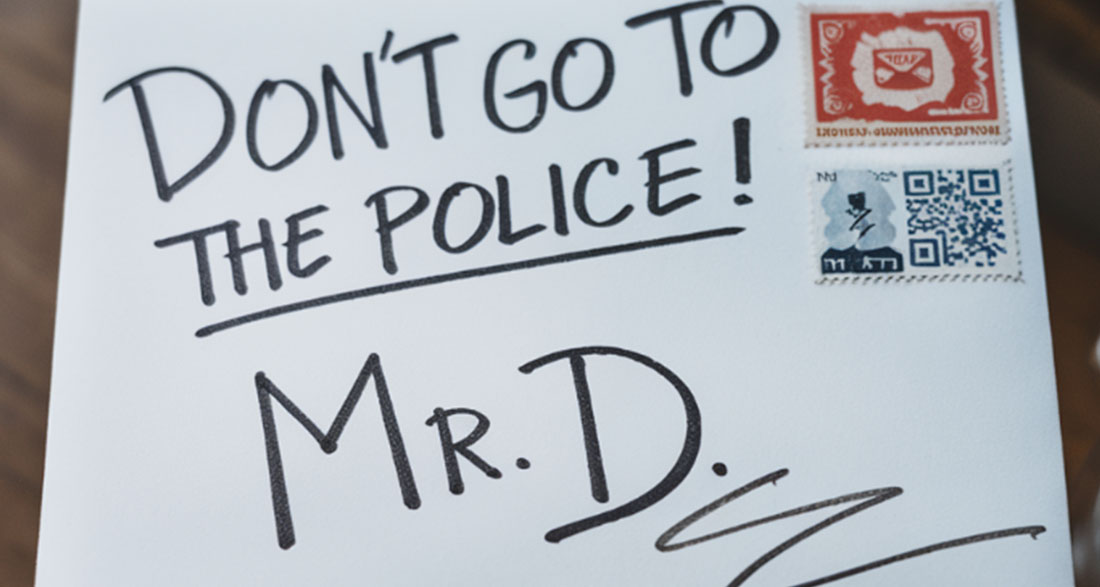I used to think my elderly neighbor was just a little strange. She kept to herself, never talked to anyone, and seemed to avoid me at all costs. But everything changed one day when I accidentally opened a letter meant for her. That letter ended up saving her life from a dangerous imposter, and it led to an unexpected friendship between us.
When I moved into this quiet, charming neighborhood a few months ago, I couldn’t help but notice Ruth, the elderly woman living next door. She was around 65, living alone in the small house beside mine. Her odd behavior caught my attention—she rarely left her home and avoided even the shortest conversations. But I respected her privacy and didn’t try to talk to her.
One evening, after a long day at my new job as a designer at a small firm, I was sorting through my mail without paying much attention. That’s when I found a handwritten envelope that looked different from the usual bills and junk mail. Without thinking, I opened it, not realizing it was meant for Ruth. As soon as I started reading, my heart nearly stopped.
The letter began with a chilling line: “MOM! THEY’RE STILL HOLDING ME. JUST KNOW THAT EVERYONE’S LYING AND I’M ALIVE! BUT WHATEVER HAPPENS, DON’T GO TO THE POLICE BECAUSE…”
A wave of panic and guilt washed over me for reading something so personal, but the fear that followed was even stronger. The contents of the letter were terrifying, and I knew I had to do something immediately. I called the police, my mind racing with questions: Who wrote this? Did Ruth have a son? What was really happening?
The police arrived quickly and took the letter from me. Their faces turned serious as they read it. They asked me about Ruth, but I admitted that I barely knew her. The officers decided to check on her, but when they knocked on her door, there was no answer. That’s when they told me their plan: a sting operation to catch whoever was behind this.
That night, I barely got any sleep. Every little noise outside made me jump, and I couldn’t stop worrying about what might happen. Around midnight, I heard a commotion outside and saw the police had caught someone—a young man, looking disheveled and frantic, being handcuffed. As they questioned him, it became clear he was involved in something very dark.
The next morning, the police told me the full story. The man they arrested was a distant relative of Ruth’s, someone she hadn’t seen in years. Ruth’s son had tragically died in a car accident years ago, his body never recovered after his car plunged into a river. This relative had cruelly taken advantage of Ruth’s unresolved grief, sending letters pretending to be her son, trying to push her over the edge so he could take control of her home and her life.
I felt sick to my stomach at the thought of it. I knew I couldn’t leave Ruth to deal with this on her own. That afternoon, I gathered my courage and went to her house, nervous but determined. When she opened the door, her eyes were red from crying. I offered my support, saying, “You’re not alone,” and to my relief, she let me in.
We spent the afternoon talking—mostly about small things, but eventually, she opened up about her son, sharing beautiful memories that brought tears to both our eyes. As we sipped tea in her cozy living room, I realized how much she needed someone to care, someone to listen. And in that moment, a bond started to form between us.
Before I left, I gave her my phone number. “Call me anytime, even if it’s just to talk,” I said, and she smiled, thanking me for everything. Her words touched me deeply: “I think my son would have liked you.”
As I walked back to my house, I knew this experience had changed me. It reminded me of the power of reaching out, of making connections even when it’s difficult. Sometimes, the smallest act of kindness can make the biggest difference in someone’s life—and in your own.


